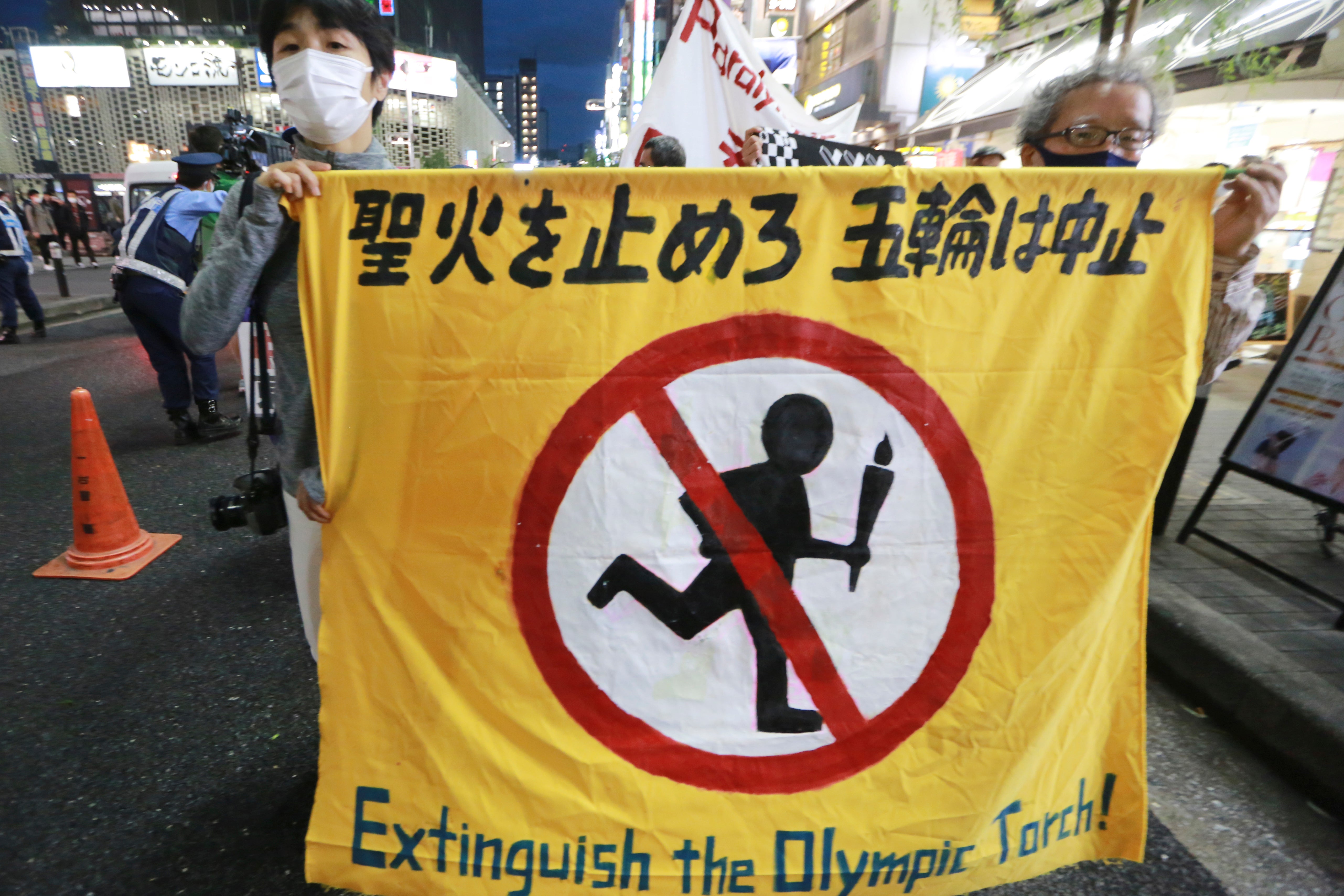Tokyo’s state of emergency won’t stop Olympics taking place, says IOC member
The current emergency measures in the city will be in place until at least the end of May.

Your support helps us to tell the story
From reproductive rights to climate change to Big Tech, The Independent is on the ground when the story is developing. Whether it's investigating the financials of Elon Musk's pro-Trump PAC or producing our latest documentary, 'The A Word', which shines a light on the American women fighting for reproductive rights, we know how important it is to parse out the facts from the messaging.
At such a critical moment in US history, we need reporters on the ground. Your donation allows us to keep sending journalists to speak to both sides of the story.
The Independent is trusted by Americans across the entire political spectrum. And unlike many other quality news outlets, we choose not to lock Americans out of our reporting and analysis with paywalls. We believe quality journalism should be available to everyone, paid for by those who can afford it.
Your support makes all the difference.The Olympic Games will proceed even if Tokyo remains in a state of emergency, according to a senior member of the International Olympic Committee.
The Japanese capital is one of nine prefectures in Japan which is in a state of emergency due to the coronavirus pandemic until May 31 at the earliest.
However, the chair of the IOC’s co-ordination commission, John Coates, is confident that even if those measures have not been lifted by the time the Games are due to open on July 23, it will not affect the event being staged.
“We’ve successfully seen five sports hold their test events during the state of emergency,” he said at a Tokyo 2020 briefing on Friday.
“All of the plans that we have in place to protect the safety and security of athletes and the people of Japan are based around the worst possible circumstances, so the answer (to whether a Games could take place during a state of emergency) is absolutely yes.
“The advice we have got from the World Health Organisation and all of the scientific advice is that all the measures we have outlined in the playbook, all those measures are satisfactory to ensure a safe and secure Games in terms of health, and that’s whether there is a state of emergency or not.”
Coates was asked about a series of negative opinion polls among Japanese residents, many of whom are still calling for the Games to be cancelled amid the global health crisis.
I’m expecting that as the number of vaccinations increase that there will be better polls and public opinion will improve.
“There may well be a correlation between some of these percentages and the low percentages so far of people in Japan who have been vaccinated,” the Australian said.
“I’m expecting that as the number of vaccinations increase that there will be better polls and public opinion will improve, but if it doesn’t we just have to make sure that we get on with our job and our job is make sure these Games are safe for all participants and all of the people of Japan.”
The final co-ordination commission ended on Friday, and Coates said: “After nearly eight years (of planning) the finish line is within touching distance.
“This is testament to the work of the Tokyo 2020 organisers and the incredible support of the Japanese government.”
The government has called on Games organisers to further reduce the number of overseas visitors to Japan, insisting that only those essential to the operation of the event come into the country.
Overseas spectators have already been barred, and a decision on how many – if any – Japanese fans can attend will be taken next month.
The IOC is confident that over 80 per cent of residents at the Olympic Village will have been vaccinated by the time they arrive in Japan, but Coates insisted the plans for daily testing of athletes would remain in place regardless of the vaccination programme.
Athletes and other participants must all abide by the ‘playbooks’ which govern almost every aspect of their lives while in Tokyo for the Games.